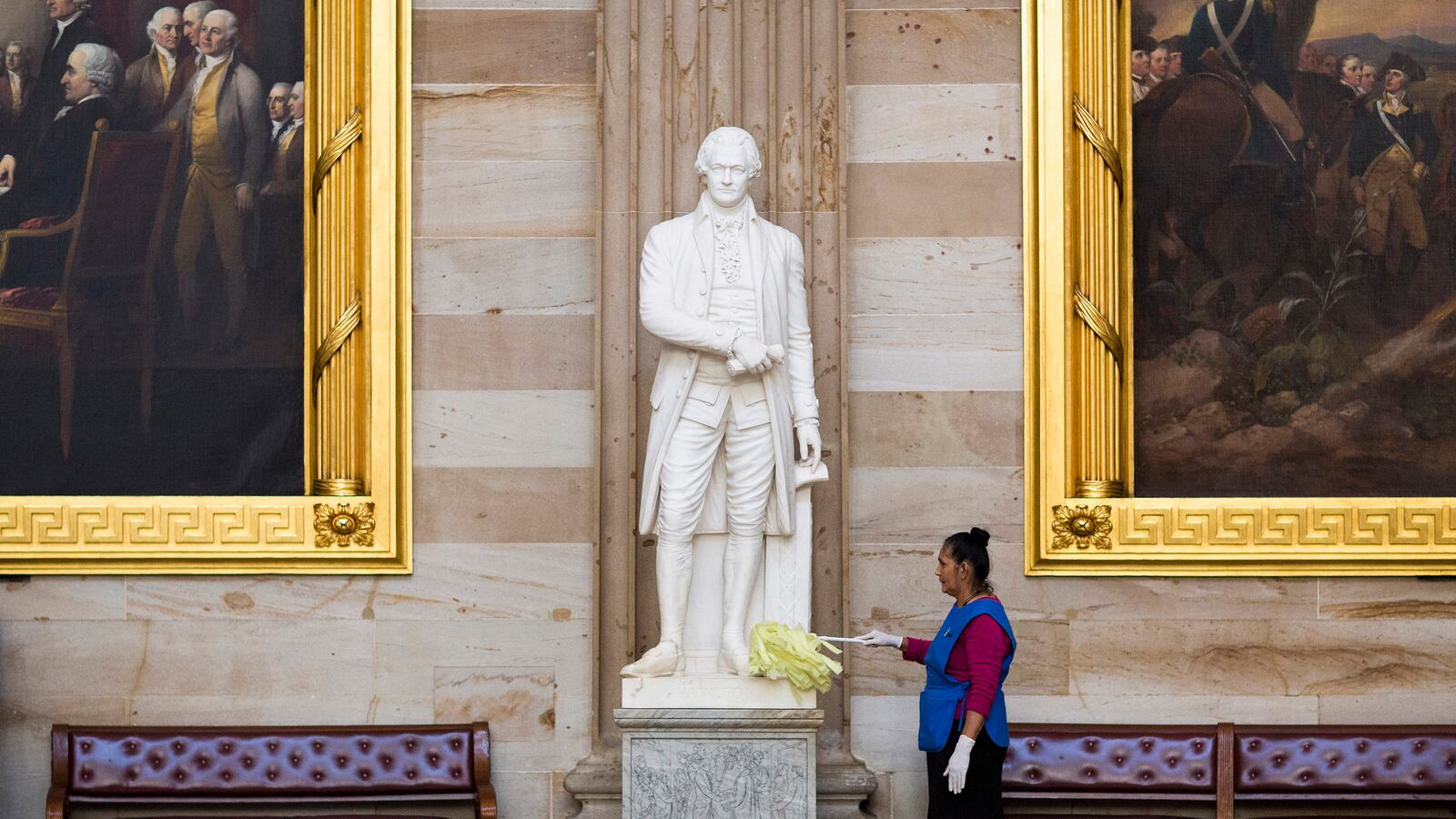I bring good news this new year! Conservatives have a jobs agenda, one that isn’t built around merely cutting taxes and regulations and getting the government out of the way so the free market can strut its stuff.

No—this includes… are you ready?… infrastructure investment, and a monetary policy less obsessed with keeping inflation under 2 percent. It’s new, it’s exhilarating, it’s brilliant! And it’s the same stuff that Barack Obama and most liberal Democrats have favored for years.
When David Frum, whom I respect a great deal, tweets that a new article should be thought of as “a ‘95 theses’ moment for the reformist right,” he gets my attention. So I clicked immediately and read through “A Jobs Agenda for the Right,” by Michael Strain of the American Enterprise Institute, from the new issue of National Affairs. I liked the essay and even agreed with a respectable percentage of what Strain had to say. But reading it was far more infuriating than reading something by a conservative and disagreeing with every syllable, because articles like Strain’s refuse to acknowledge, let alone try to grapple with, the central and indisputable fact that the contemporary Republican Party—his presumed vehicle for all this pro-jobs reform—has opposed many of these initiatives tooth and nail.
The first big measure Strain touts in his essay is infrastructure. “Anyone who has driven on a highway in Missouri or has taken an escalator in a Washington, D.C., Metro station knows that the United States could use some infrastructure investment,” he writes. He doesn’t lay out a specific program, but clearly he favors fairly broad public investment.
Um, OK. There are people who’ve been trying to do just that. And not only Barack Obama. John Kerry led this effort in the Senate, and he was joined by Republican Kay Bailey Hutchison (who’s since retired). Their attempts to fund a modest infrastructure bank were supported by the U.S. Chamber of Commerce. But it could never get anywhere because of rock-solid GOP opposition. Does Strain not even know this? Or is he pretending it never existed so he doesn’t have to deal with the political reality of Republican obduracy?
I think, of course, it’s the latter, and there’s further evidence for my guess in the way Strain talks about recent history. The 2009 stimulus was not a failure in infrastructure terms at all (has he read Michael Grunwald?). But even if you believe it was an infrastructure failure, or have to say so for political reasons, should you not acknowledge in fairness that it was Democrats and liberals who wanted it to have more infrastructure spending, and that nearly 40 percent of bill took the form of tax cuts because that’s what Republicans demanded (before they decided en masse to vote against it anyway)?
From there, Strain turns to monetary policy, and this is even more comic. The Federal Reserve, he writes, should relax the 2 percent inflation target to get the unemployment numbers down. Uh, yes. It should. But it’s not as if Strain just originally thought of this. Liberals have been saying this ever since 2009, or 2008 even. And in response, conservatives have been saying that doing so will produce galloping inflation and destroy our economy. You’ve seen Ben Bernanke get badgered about inflation by Republicans from Paul Ryan on down for years. Inflation could have been 1.2 percent, or lower, but if Bernanke was up on the Hill, Republicans tore into him as if he were unleashing the mid-’70s on us again.
As I said, I agree with Strain. I agree when he writes: “In short, conservatives should see that there is a role for macroeconomic stimulus in getting the labor market back on its feet” and that “monetary policy with its eye on enabling growth can make a big difference.” Yes, they should. Well… how are they going to see that? Does Strain have some special pixie dust?
It’s astonishing that he can write this way, but it’s what they all do on the right. They maintain the fiction that their party is a party of rational people who will listen to rational argument and isn’t simply dug into a state of psychotic opposition to anything Barack Obama wants to do. Everyone watching our politics for the last five years knows that if Obama is for it, the Republicans will oppose it. Strain might say counting noses in the Senate isn’t his job. Well, OK. But at least he could acknowledge that his party has been preventing some of his own ideas from having any hope of becoming reality (he goes on to discuss other proposals, some of them more traditionally conservative, others that acknowledge a fairly strong governmental role in getting people back to work).
Usually, with regard to jobs and wage stagnation and poverty and so on, the problem is that conservatives deny empirical reality. This gives us people like Paul Ryan, for example, who genuinely seems to believe, in the face of the mountains of evidence about how the social safety net and federal entitlements have saved millions from lives of far worse destitution, that all government can do is make slaves of people. That’s bad enough.
But now, we have conservatives who accept enough empirical reality to agree that public investment is not a crime against nature, but who deny the political reality that the Republican Party stands in the way of progress. This may actually be worse. The only hope of changing Washington for the better is getting a Republican Party in which there are enough legislators who act like legislators again and who are willing to cross party lines occasionally for the sake of governance and the country. If conservative intellectuals keep pretending this isn’t a problem, there is no hope that it will change.






